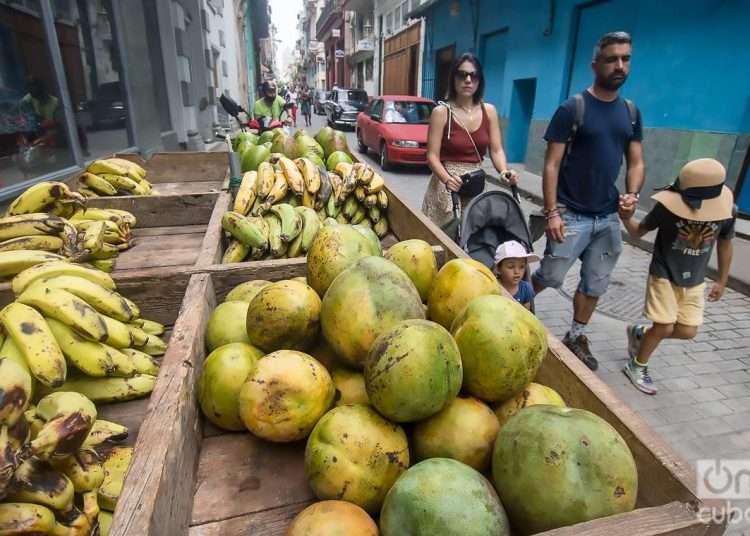Cuban President Miguel Díaz-Canel highlighted this Wednesday that several countries in Latin America and the Caribbean agreed to define commercial facilities for an exchange of goods in “better conditions” and other measures against inflation.
Díaz-Canel reported from Twitter that they also agreed on “logistical, financial measures” after intervening electronically at the summit against inflation called by Mexican President Andrés Manuel López Obrador.
En declaración de Cumbre de Presidentes celebrada hoy, acordamos avanzar en definición de facilidades comerciales, medidas logísticas, financieras y otras permitan que el intercambio de productos de la canasta básica y bienes intermedios ocurra en mejores condiciones.
— Miguel Díaz-Canel Bermúdez (@DiazCanelB) April 5, 2023
“In a statement of the Summit of Presidents held this Wednesday, we agreed to advance in the definition of commercial facilities, logistical, financial and other measures that allow the exchange of products of the basic basket and intermediate goods in better conditions,” he noted.
Díaz-Canel pointed out that another of the results was to create a technical working group to “determine regional cooperation measures and establish an action plan that facilitates trade, technology transfer, maritime and air connectivity, and the creation of capabilities.”
He also thanked Mexican President Andrés Manuel López Obrador for inviting him to the meeting “in which we agreed with proposals aimed at facilitating and expanding the exchange of goods, and we call for promoting cooperation to increase food production and access to it.”
https://twitter.com/JosefinaVidalF/status/1643674313969610753?ref_src=twsrc%5Etfw%7Ctwcamp%5Etweetembed%7Ctwterm%5E1643674313969610753%7Ctwgr%5Ebc1e96fbbbf1bd97241ce84356a1e7afd1e625cd%7Ctwcon%5Es1_&ref_url=https%3A%2F%2Foncubanews.com%2Fcuba%2Fcuba-destaca-acuerdo-regional-para-contrarrestar-la-inflacion%2F
At the meeting, in which other Latin American presidents intervened, Díaz-Canel also suggested resorting to barter trade, Cuban Deputy Foreign Minister Josefina Vidal explained on Twitter.
“Although it seems that (inflation) is subsiding, it is still a permanent threat, because it greatly affects the people’s economy. We are increasing the salary like never before, but if we do not control inflation, we cannot improve the purchasing power of the people,” López Obrador explained in his initial speech, quoted by the EFE news agency.
The summit had as a prelude a meeting of foreign ministers and ministers on March 27 where economic and commercial proposals were discussed to mitigate the price increase in the basic food basket.
The Cuban government does not regularly publish a Consumer Price Index, but it recognized that in 2022 year-on-year inflation in the formal market reached 39.07% (that of the informal market was much higher). This means that in the last two years, the prices in the formal market have doubled.
Cuba experiences a sustained rise in the prices of products, especially food, since the application of the “Task of Reorganization,” an economic and monetary reform implemented at the beginning of 2021.
The package’s aim was to eliminate the dual currency in the country but ended up generating perceptible imbalances in inflation and hidden dollarization of the economy.
Cuba is especially sensitive to the increase in food prices in the international market because it imports about 80% of the food it consumes, according to United Nations data, EFE pointed out.
EFE/OnCuba










